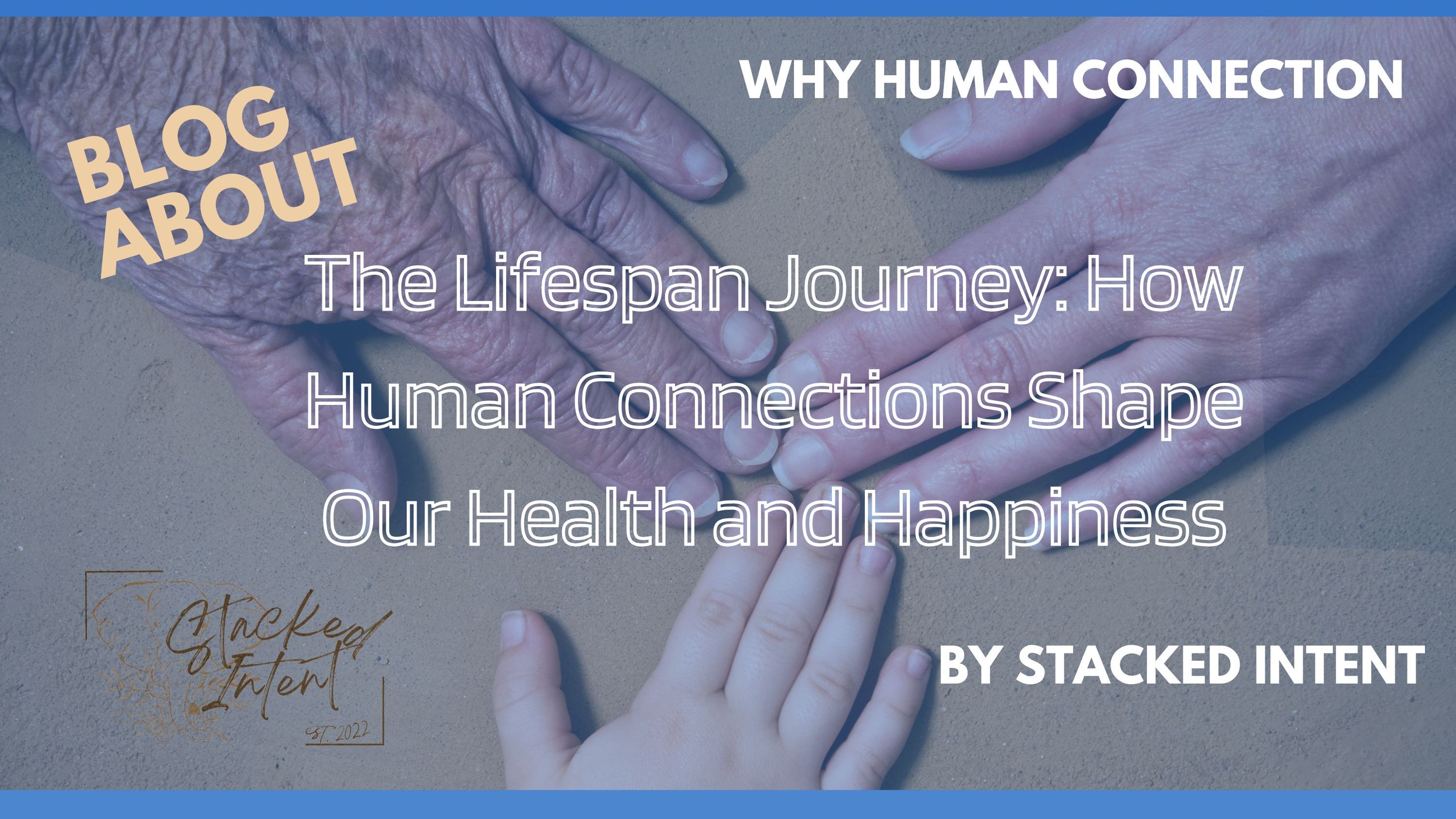The Lifespan Journey: How Human Connections Shape Our Health and Happiness
Apr 29, 2025
From the moment we are born, relationships play an essential role in shaping our lives. Our social connections evolve as we move through different life stages, starting with parental bonds, then friendships, and later, romantic relationships and professional networks. These bonds are more than just emotional—they impact our physical and mental health, longevity, and overall quality of life. Let’s explore how relationships influence us from childhood to old age, and why they are crucial at every stage.
Early Foundations: Building Trust Through Parental Bonds (0-5 Years)
In the formative years of early childhood, human connections predominantly revolve around the foundational bonds formed with parents or caregivers. These early interactions teach babies to trust, providing the emotional security that will help them build relationships in the future. The more secure these early attachments are, the better children will develop emotionally, socially, and cognitively. Secure attachments during infancy foster basic trust in others, forming the foundation for healthy relationships later in life. Children who feel emotionally safe and supported are more likely to navigate social interactions positively and build strong, meaningful connections as they grow.
Childhood: Beginning to Navigate Peer Relationships (6-12 Years)
As children grow, their relationships with peers become more significant. They begin to develop essential social skills like cooperation, communication, and conflict resolution. Peer relationships also help children understand their place in the world, forming their sense of identity and belonging. Peer interactions during childhood teach kids the value of working together, understanding different perspectives, and resolving differences. These experiences help them develop emotional resilience and social confidence, which are vital as they face new challenges in adolescence.
Adolescence: Shaping Identity (13-19 Years)
Adolescence is a time of self-discovery and identity formation. Friendships, romantic relationships, and peer influence become central to how teens see themselves and navigate the world. The quality of these social connections shapes their self-esteem, values, and overall emotional well-being. Social bonds during adolescence influence a teen's sense of self-worth and identity. Positive friendships and romantic relationships can provide emotional support and help teens build confidence, while negative ones may contribute to anxiety or depression.
Young Adulthood: Forming Intimate Connections (20-40 Years)
In young adulthood, forming intimate relationships—both romantic and platonic—becomes a key focus. These relationships provide emotional support, shared experiences, and opportunities for personal growth. Additionally, young adults begin building professional connections that will help them in their careers and personal development. Intimate connections in young adulthood help people establish independence while offering essential emotional support. These relationships create a sense of belonging and contribute to mental and physical health, making them crucial as individuals balance career, family, and personal growth.
Middle Adulthood: Balancing Family and Career (41-60 Years)
In middle adulthood, people often juggle family responsibilities with career demands. Social connections become even more critical during this stage. Strong family bonds, friendships, and professional networks provide support during challenging times, helping individuals manage stress and maintain a sense of fulfillment. Balanced relationships during middle adulthood help individuals manage the demands of work, family, and personal life. Strong social connections protect against stress, promote emotional well-being, and foster resilience, especially when balancing multiple roles.
Elderhood: Nurturing Social Support (61+ Years)
As individuals age, maintaining strong social connections becomes vital. Older adults rely on social support networks for emotional connection, companionship, and assistance with daily activities. Engaging with others can also boost cognitive function, combat loneliness, and improve overall well-being. Social support in elderhood is associated with better cognitive health, improved physical well-being, and lower rates of depression. Staying socially active and connected increases longevity and helps older adults feel more fulfilled and less isolated.
Throughout life, the quality and quantity of our human connections impact our physical health, mental well-being, and overall quality of life. These human connections are more than just fulfilling emotional needs; they have a profound effect on our bodies and brains. Human connection is a and meaningful relationships stimulate brain growth, promote emotional resilience, and reduce stress. Social bonds activate neurotransmitters like oxytocin, which foster feelings of trust, bonding, and emotional well-being. Strong human connections are linked to a stronger immune system, improved cardiovascular health, and lower stress levels. Positive social interactions help reduce the risk of chronic diseases and promote longevity. Our human connections play a significant role in reducing anxiety, depression, and stress as they provide emotional support and a sense of belonging, creating a protective buffer against life’s challenges. Meaningful relationships enhance life satisfaction, increase feelings of purpose, and improve mental well-being. Social support fosters a sense of belonging and provides opportunities for shared experiences that make life more fulfilling. So strong social human bonds are linked to increased longevity. They promote healthier lifestyle choices, reduce stress, and improve mental health, contributing to a longer, healthier life.
How to Build and Maintain Healthy Human Connections
Maintaining connections is essential for well-being, and there are many ways to build and nurture these relationships. Here are some practical tips for staying connected throughout life:
Prioritize Quality Over Quantity: Focus on building deep, meaningful relationships rather than trying to maintain a large number of superficial ones. Deep connections provide more emotional support and help you feel truly understood.
Engage in Activities Together: Whether it is exercise, hobbies, or simply hanging out, doing activities with others strengthens relationships and creates shared memories.
Stay Consistent: Make time for regular check-ins with friends and family. This is true in connecting younger kids to older family members. Whether through phone calls, video chats, or in-person visits, consistency is key to maintaining strong relationships.
Be Empathetic and Actively Listen: Good communication is the foundation of any relationship. Practice empathy and active listening, showing that you truly care about others’ thoughts and feelings.
Join Communities: Whether online or offline, being part of a group with shared interests creates a sense of belonging and opens opportunities for making new connections.
Relationships are the heart of a fulfilling life from birth to elderhood with the relationships we form as they play a crucial role in our health, happiness, and longevity. At every stage of life, human connections provide emotional support, contribute to physical well-being, and enhance our overall quality of life and by prioritizing meaningful connections, we can ensure a healthier, happier life at any age.
It’s about the journey, not the destination
Grab a weekly lesson, motivation, and self-care ideas delivered to your inbox in becoming authentically YOU.
We hate SPAM. We will never sell your information, for any reason.




